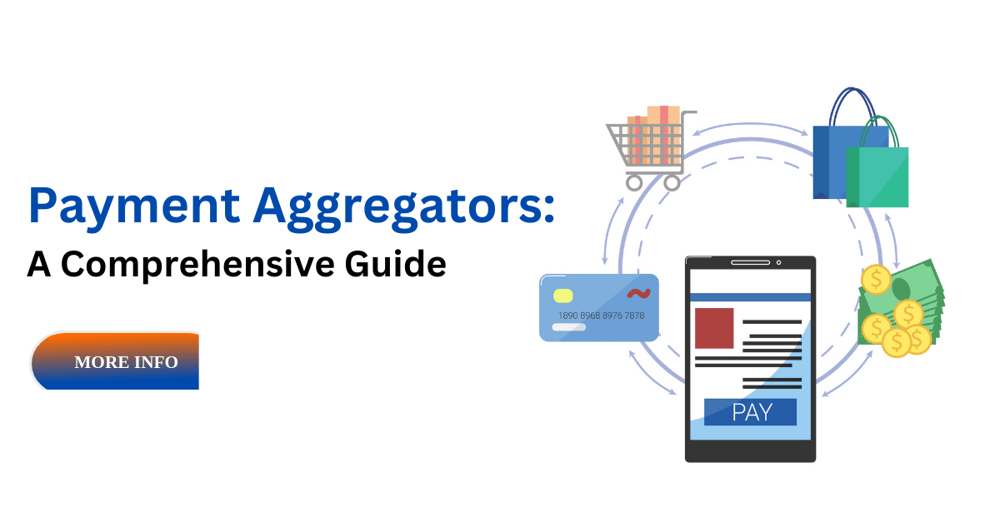In today's fast-paced financial landscape, efficiency and automation reign supreme. For both...
Payment Aggregator - All you need to know!

In today's digital age, the financial services industry is undergoing a significant transformation, driven by innovations in technology and changing consumer preferences. One of the key enablers of this transformation is the emergence of Account Aggregators. These platforms have been gaining prominence, facilitating seamless and secure access to a user's financial data, and are an integral component of the burgeoning FinTech ecosystem.
Account Aggregators: A Brief Overview
Account Aggregators (AAs) are a category of financial technology service providers that have emerged to address the need for easy, secure, and standardized data sharing between various financial institutions and their customers. These platforms enable users to aggregate and access their financial information from multiple sources, including banks, mutual funds, insurance companies, and other financial service providers.
The AA framework operates on a consent-based model, ensuring that user data remains secure and private. Customers can grant specific entities, such as lenders, insurers, or investment firms, temporary access to their financial data for a predefined purpose, like loan approval, underwriting, or financial advisory services. This innovative approach to data sharing has paved the way for numerous use cases, with payment aggregators being one of the most prominent.
Use Cases for Payment Aggregators
Payment aggregators, a subset of the broader AA ecosystem, have been instrumental in streamlining and enhancing various financial processes. Let's delve into some of the key use cases for payment aggregators, showcasing their impact on the financial services landscape:
Streamlining Loan Approvals:
Payment aggregators play a crucial role in expediting the loan approval process. Borrowers can grant temporary access to their financial data to potential lenders, who can then assess their creditworthiness more efficiently. This leads to quicker loan disbursals, reducing the hassle for consumers and lenders alike.
Personalized Financial Advisory:
Payment aggregators empower financial advisors and robo-advisory services by providing them with comprehensive insights into a user's financial situation. This enables them to offer personalized financial advice, investment strategies, and wealth management solutions tailored to the individual's goals and risk tolerance.
Insurance Underwriting:
Insurance companies can leverage payment aggregators to streamline the underwriting process. By accessing an applicant's financial data, insurers can assess the risk profile more accurately, resulting in better pricing and coverage options for policyholders.
Expense Tracking and Budgeting:
Payment aggregators can help users gain better control over their finances by consolidating transaction data from various accounts and credit cards into a single platform. This enables easy expense tracking, budgeting, and financial planning, promoting healthier financial habits.
Investment Management:
Investors can use payment aggregators to monitor and manage their investment portfolios effectively. These platforms provide a consolidated view of all investment accounts, helping users make informed decisions about asset allocation, diversification, and rebalancing. Here's an article by Sahamati on How Payment Aggregators use it for Risk Fraud Management
What do the statistics say?
The growth and impact of payment aggregators are best understood through recent reports and statistics. Here are some key findings:
Rapid Adoption: A report from a leading financial technology research firm revealed that the adoption of payment aggregators increased by 30% in the last year, driven by their ability to simplify financial transactions and enhance financial management.
Loan Approval Times: Financial institutions using payment aggregators reported a 40% reduction in loan approval times, resulting in increased customer satisfaction and better conversion rates.
Revenue Growth: Payment aggregator companies experienced significant revenue growth, with a 50% increase in their annual revenues over the last two years, showcasing their value to both consumers and financial institutions.
Security and Compliance: Payment aggregators have demonstrated their commitment to data security and regulatory compliance. According to a report from a cybersecurity consultancy, payment aggregators consistently outperform traditional financial institutions in terms of data security and privacy protection.
Conclusion
Account aggregators and payment aggregators are poised to revolutionize the financial services landscape by providing secure, efficient, and user-friendly solutions for data sharing and financial management. Their use cases extend beyond what we've explored in this blog, with potential applications in tax reporting, financial inclusion, and more. As the FinTech ecosystem continues to evolve, these innovative platforms will play an increasingly vital role in enhancing customer experiences and financial efficiency.
The latest reports and statistics highlight the impressive growth and impact of payment aggregators, reaffirming their importance in shaping the future of financial services. With their commitment to data security and privacy, payment aggregators are set to become indispensable tools for both consumers and financial institutions. As the FinTech landscape continues to evolve, we can expect even more exciting developments in the realm of account and payment aggregators.
Are you a fintech interested in being a part of our AA network, Connect with us!


